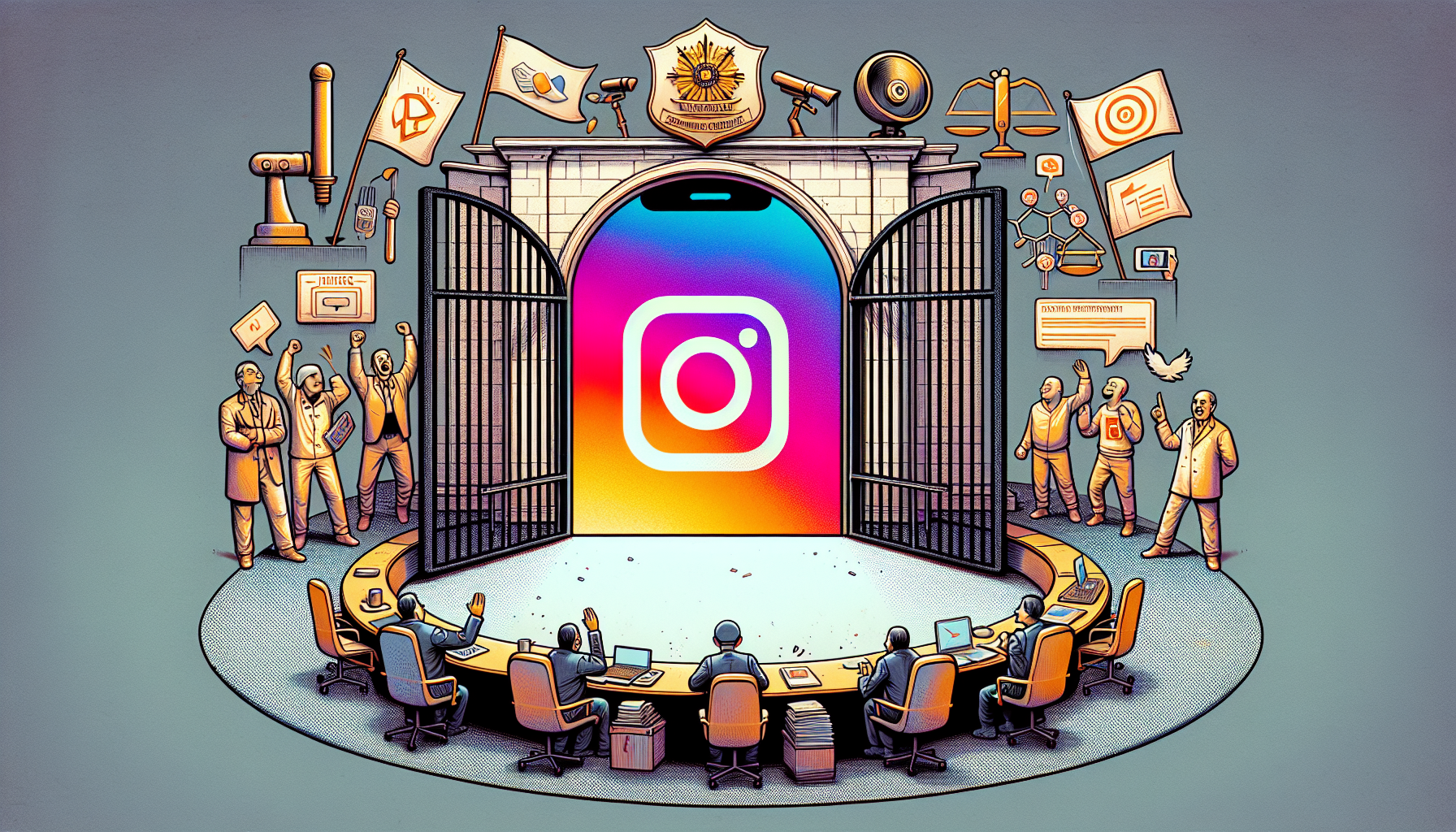 ## Turkey Reinstates Instagram Access: A Complicated Interaction of Censorship and Responsibility
## Turkey Reinstates Instagram Access: A Complicated Interaction of Censorship and Responsibility
In an era where social media platforms frequently represent the key channels for communication and disseminating information, the recent ban and later reinstatement of Instagram in Turkey exemplifies the delicate equilibrium between governmental authority and platform accountability. This occurrence highlights the persistent international discourse surrounding censorship, the right to free speech, and the obligations of social media enterprises.
The Shutdown and Its Consequences
On August 2, Instagram users within Turkey discovered they could no longer access the platform. The abrupt interruption left millions disconnected, igniting widespread speculation and anxiety. While the Turkish government initially refrained from offering any formal explanation, this action followed closely on the heels of Fahrettin Altun, Turkey’s communications chief, accusing Instagram of suppressing posts that delivered condolences for Ismail Haniyeh, a Hamas leader who had recently died.
Governmental Apprehensions: Catalog Crimes and Censorship
Transport Minister Abdulkadir Uraloglu subsequently addressed the matter, voicing concerns about content associated with catalog crimes, which encompass grave offenses such as murder, sexual assault, drug trafficking, and torture. These worries were exacerbated by claims of censorship placed on Instagram users, which the Turkish government found intolerable.
The position taken by the Turkish government mirrors a wider trend of media oversight and censorship, where platforms frequently face pressure to conform to national regulations and policies. This instance is not unique; rather, it forms part of a global movement where governments are progressively examining social media platforms for potentially harmful or politically sensitive content.
Instagram’s Response and Restoration of Access
After negotiations took place, Instagram consented to fulfill Turkey’s requirements regarding censorship and crime-related material. This agreement facilitated the resumption of access, as validated by NetBlocks, an organization monitoring internet activity. The resolution of this conflict highlights the underlying power dynamics between national authorities and multinational tech firms.
The Wider Implications for Social Media Entities
This event prompts vital inquiries about the roles and duties of social media platforms in overseeing content. As entities like Instagram navigate the intricate terrain of international regulations, they must balance compliance with local laws while maintaining commitments to free expression and user privacy.
The situation in Turkey encapsulates a broader global conundrum, wherein platforms often find themselves in the middle of government demands and user expectations. This balancing act is made increasingly difficult by the varying legal and cultural environments across countries.
Conclusion
The reinstatement of Instagram access in Turkey stands as a testimony to the intricate relationship between governmental power and corporate duty in the digital landscape. As social media platforms broaden their influence, they need to maneuver through a continually shifting array of regulations and expectations. The incident in Turkey emphasizes the necessity for dialogue and negotiation in resolving tensions between governments and tech firms, safeguarding the digital realm as a venue for free expression and communication.
Q&A
Q1: Why was Instagram blocked in Turkey?
A1: Instagram was blocked in Turkey due to concerns surrounding catalog crimes and allegations of censorship affecting users. The Turkish government sought compliance from Instagram to address these concerns.
Q2: How long was Instagram unavailable in Turkey?
A2: Instagram was inaccessible for just over a week, starting on August 2, until access was restored following discussions between the platform and Turkish authorities.
Q3: What constitutes catalog crimes, according to the Turkish government?
A3: Catalog crimes, as characterized by the Turkish government, involve serious offenses like murder, sexual assault, drug trafficking, and torture.
Q4: How did Instagram react to the Turkish government’s requirements?
A4: Instagram agreed to adhere to the Turkish government’s stipulations regarding censorship and content related to crimes, resulting in the restoration of access in the nation.
Q5: What does this situation reveal about the dynamics between social media platforms and governments?
A5: This situation underscores the intricate relationship between social media platforms and governments, wherein platforms must juggle compliance with local laws while also upholding the principles of free speech and user privacy.
Q6: In what way does this scenario in Turkey exemplify larger global patterns?
A6: The scenario in Turkey represents a global trend where governments are increasingly scrutinizing social media platforms for content that may be labeled as harmful or politically sensitive, compelling platforms to navigate a wide array of legal and cultural contexts.